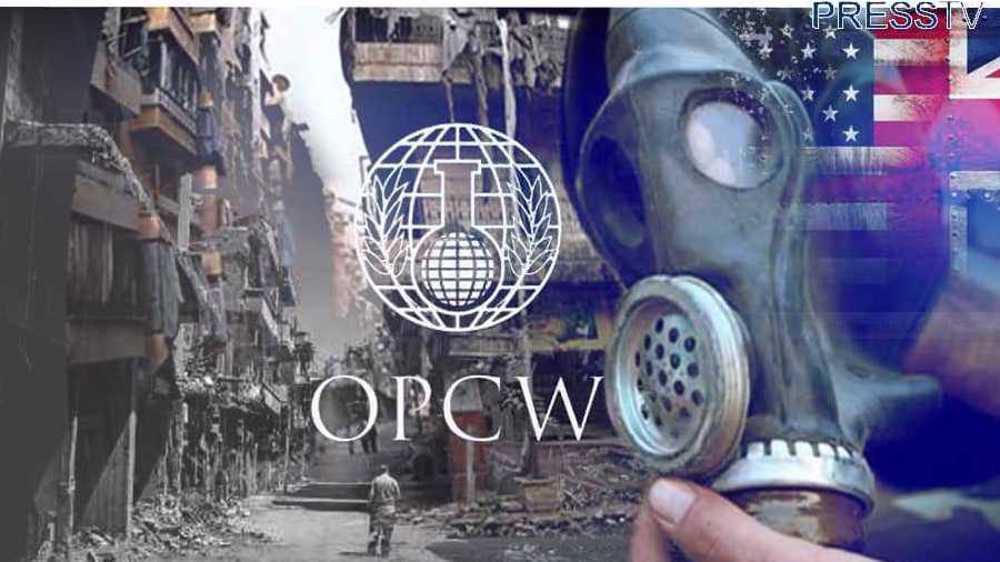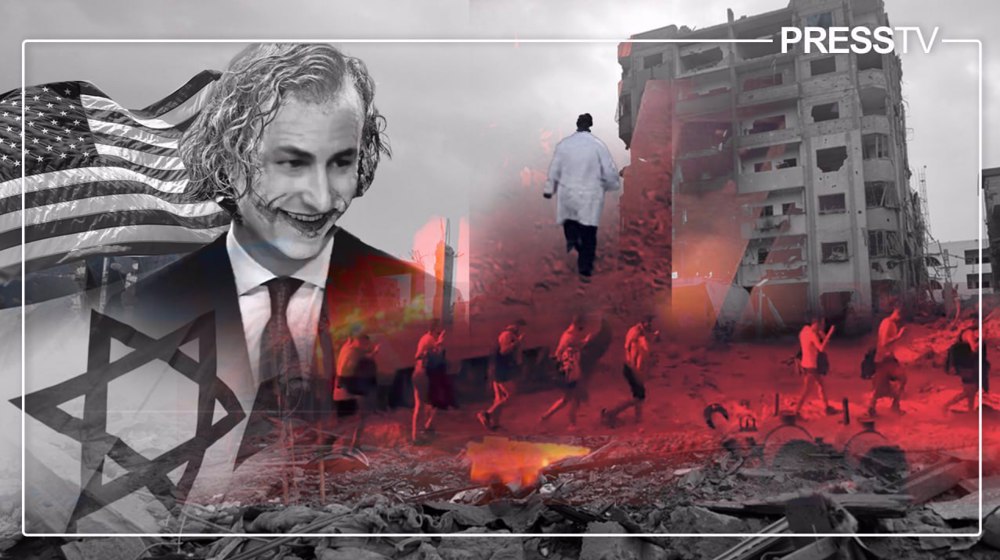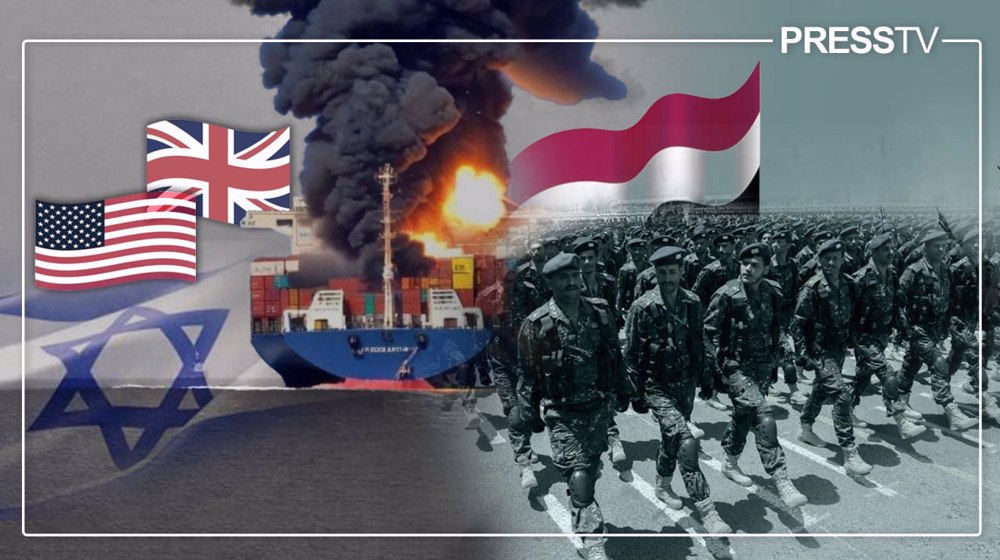OPCW ignores critics of its cover-up, imposes sanctions on Syria
By Robert Inlakesh
(Robert Inlakesh is a journalist, writer, and political analyst. He has lived in and reported from the occupied West Bank. He has written for publications such as Mint Press, Mondoweiss, MEMO, and various other outlets. He specializes in analysis of the Middle East, in particular Palestine-Israel matters. He also works for Press TV as a Europe correspondent.)
The Organization for the Prohibition of Chemical Weapons (OPCW) has revoked Syria’s privileges at the agency, accusing it of repeatedly using chemical weapons during the civil war, yet refuses to properly address complaints of a cover-up by the organization over their sole on-the-ground investigation of any such attack.
On April 7, 2018, an alleged chemical weapons attack was reported from inside Douma, Syria, according to reports on the ground. Days later, the US, the UK, and France bombarded Syria in “response,” without any clarification that any such attack had taken place.
The significance of the alleged Douma attack was not only that it led to Western airstrikes on Syria, but also that it was the first alleged chemical attack that the OPCW had sent an on-the-ground team to investigate.
Despite the OPCW now concluding that there was a chemical attack that took place, the leaked ‘original report’ put together on the incident reveals that the studies conducted had found no evidence of a chemical attack using chlorine gas.
Two whistleblowers also spoke out from inside the OPCW, creating greater doubt about the credibility of the OPCW’s publicly stated conclusions. A leaked engineering assessment, conducted by the OPCW, on the two gas cylinders found at the site of the alleged Douma attack interestingly found that the evidence had been tampered with.
The first head of the OPCW, Jose Bustani, has also applied pressure and challenged the way the organization has handled the reporting, along with experts in the field such as Theodore Postol, an award-winning professor of Science, Technology and National Security Policy at MIT.
Recently, award-winning investigative journalist Aaron Mate addressed a United Nations Security Council panel, laying out a detailed analysis — which he says casts doubts over the OPCW’s current position — on whether there was a chlorine gas attack in Douma. When, at the end of the meeting, it came time for the representatives from both the US and UK to answer a direct question posed to them by Mate, they had already left the meeting.
An EU lawmaker, Mick Wallace, was also attacked as having repeated “fake news” when he questioned the OPCW Director-General Fernando Arias and said the following: “Why will you not heed calls from renowned international figures... to meet with all the investigators?” He went on to state, “This problem is not going away. Are you going to investigate all aspects in a transparent manner?”
It’s safe to say that there are large question marks surrounding the OPCW’s findings, but what of those “moderate rebels” in Syria claiming to have witnessed a massacre of Syrian civilians with chlorine gas?
The allegations of a Douma chemical weapons attack came from within territory held by a Saudi-backed extremist group, Jaish al-Islam. The terrorist organization, described as “moderate rebels” by Western media outlets, had a track record of placing Syrian civilians — men women and children — in cages outside of areas where militants were stationed in order to deter airstrikes from the Syrian government and its allies. The group also had been accused of starving and brutally executing Syrian civilians, on top of shelling civilian neighborhoods under Syrian government control and filming themselves opening fire upon civilian airliners.
At the time of the reported chlorine gas attack, it was clear that the Syrian government and their allies were on the verge of taking the rest of “rebel” -held Eastern Ghouta. The claims of a chemical weapons attack directly caused Western airstrikes, as happened just a year prior when a supposed chemical weapons attack also occurred in an area known as Khan Sheikhoun.
There was clearly a motive for the extremist organization, Jaish al-Islam, to claim that such an attack occurred in Douma, especially as they were losing the battle against government forces. In the case of the Syrian government, there would be no reason to risk committing such an atrocious crime when they were days away from complete victory, inviting Western airstrikes. This was simple to see, with the most elementary-level understanding of the Syrian war, yet these types of common sense arguments weren’t even taken into consideration by the international community.
Now, after ignoring all the credible critics, from journalists to EU lawmakers and whistleblowers to the ex-director general of the OPCW itself, the organization sees it fit to impose sanctions on Syria for committing chemical attacks. Interestingly enough, they note multiple attacks as their justification and not just the Douma attack, and when pushed on it, the director general pointed to human rights reports to support his argument.
It is clear that the OPCW has taken a serious blow to its credibility and has decided to back Western imperialism over the truth, a shameful decision that serves as part of the justifications provided for the West applying its murderous sanctions on Syria.
(The views expressed in this article do not necessarily reflect those of Press TV.)
Hamas confirms handing approval of Gaza ceasefire deal to mediators
VIDEO | Iran: Show of strength
UNRWA will ‘stay, deliver’ aid to Palestinians despite Israel’s ban: Lazzarini
Explainer: What makes Iran's Rezvan and Raad loitering munitions prized assets?
VIDEO | Unseen agony: Missing loved ones of genocide in Gaza
Iran cuts gold import tariff to zero
Pezeshkian: Iran determined to develop, boost ties with neighbors
VIDEO | Israel, Hamas ceasefire agreement: Closer than ever










 This makes it easy to access the Press TV website
This makes it easy to access the Press TV website